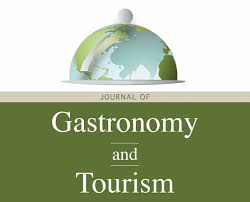Jacinthe Bessière, Tourism as a Strategy for Redeployment in the Local Agri-Food Supply: The Case of Midi-Pyrénées; Journal of Gastronomy and Tourism, Volume 2, Number 4, October 2017, pp. 273-285(13) DOI: https://doi.org/10.3727/216929717X15046207899429

Contemporary agricultural production is subject to a new dynamics of heritage enhancement that involves exploiting its economic, social, and cultural resources. As part of a development strategy for rural areas and in response to a growing social demand, this process revitalizes agricultural and rural spaces by giving them new social, cultural, and touristic functions. French food heritage is a lever for tourism development, but it is also a marker of collective identity. The gastronomic experience associated with tourism crystallizes a range of expectations and representations, notably in rural areas, giving rise to changing practices, new offers, and modes of supply, often on the fringes of more institutionalized, less differentiated tourism development. If tourism can be seen as a potential springboard for innovation, promoting or consolidating regional food heritage enhancement initiatives, it also provides a space for redeployment by actors in the local agri-food supply. By focusing on tourism practices and representations, this article examines the impact of the quite considerable tourism market in Midi-Pyrénées on food heritage innovation and what ways eating provides a lever for redefining the local offer. The article highlights the plurality of local agri-food forms available to tourists, with countless different actors and interactions between tourists and stakeholders. Considerable variety in adaptive strategies is found, either predominantly conservative or radically innovative, or a more hybrid combination of the two.
Keywords: food heritage, food supply chain, France, innovation, local actors






